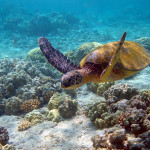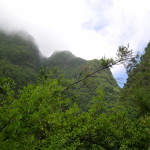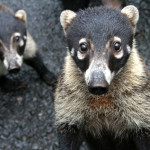For a little over four months, an extraordinary group of senior students have been meeting to try and accomplish an ambitious CAS project. On Thursday 28th March, they finally succeeded by presenting a short video accompanied by a compelling presentation to a class of grade four students, on the subject of marine biology in Rio.
In order to get to this point, the students had first agreed to form a club; the science exploration club with the goal of study science through the lens of outdoor adventure. They then had to come up with a suitable CAS project that would consume them for the rest of their senior year.
The answer, which ignited the enthusiasm of everyone present at the first meeting; was to train and certify as scuba divers, and then use this sport as a medium for studying marine biology in the coastal waters of Rio de Janeiro.
With the cooperation of certified scuba instructor Marcelo Valsechi (CEO Awei tours), and with myself acting as supervisor, the group reached out first to a PhD student from the university of Pittsburgh to ask for a weekend masterclass in the safe handling of marine life. Starfish, pufferfish, octupi and sea urchins were all investigated at close quarters off the coast of Niterio just of Itaipu beach. Of course, the group had to master snorkeling techniques first, given by Marcelo on the beach; much to the amusement of the sunbathing families.
Next a local scuba diving outfit, Mar do Rio, based in Gloria, were contacted and a PADI open water scuba diving course organised by the student leaders, Bernardo Temke and Luciano Lara. This being a busy year, many of the lessons had to take place on the weekends and during the evenings after school. The group grappled with the complexities of assembling Jean Jaques Cousteau’s modern aqualung in a diving tower at 9pm at night.
Next came the four qualifying dives, which took place on two weekends and included diving in the water of the Ihas de Cagarras, off the coast of Rio. During the final qualifying dive, a southerly cold current intercepted the diving plan, and the boys had to descend to 18m in waters of an estimated 12 degrees centigrade.
I was a chaperone on this dive, and it literally felt like your face was imploding under your mask as the cold water washed over your sinuses, causing an intense pain at the boundary between rubber mask and human skin. It took several tries for the team to get the courage to descend, but descend they did.
The team were back to take a final theory exam on another saturday morning. Finally, after collaboration with CAS coordinator Teresa Dominges, a reflective presentation was prepared and delivered, with the sobering message of how threatened the marine wildlife off the coast of Rio is and the urgent need to protect it.. Please join us in congratulating the Science exploration club for sticking the course, and completing a very inspiring CAS project.





